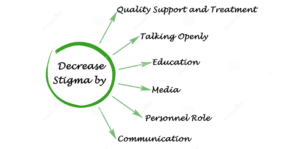Here we are part way through January and it’s two growingly popular monthly challenges, Dry January and Veganuary. I’m just thinking about the drinking one for now.
I was reminded of an old saying reading Sam Thomas’s piece in The Independent this week. “Giving up drinking for a month proves one thing – that you can give up drinking for a month.”
it does not prove you do not have a problem when you drink.
Sam Says, “There’ll be many people like myself who are over the threshold and may be suffering in silence. They may have unexplained symptoms after a few days of abstaining while participating in Dry January. Or they may have caved in and gone back to drinking, not knowing why. “
I would add that there will be a lot of triumphant boasts of “see, I told you I don’t have a problem!”, “I can stop any time I want”, sadly whilst true in some cases many more use this justification to return to a lifestyle that is doing them few favours.
“That’s the problem with drinking, I thought, as I poured myself a drink. If something bad happens you drink in an attempt to forget; if something good happens you drink in order to celebrate; and if nothing happens you drink to make something happen.”
Charles Bukowski
It’s the not knowing why that Sam highlights that a few links here are intended to help with – a bit.
Veronica Valli’s latest piece for Psychology Today, “The deceptive promise of alcohol”, contains information about factors that help explain why it is so hard to think clearly around the issue of drinking, even when that drinking is costing more than the price of the drink.
Veronica says, “Alcohol is an accepted part of our culture—we automatically assume most adults drink. We all know that alcohol use can be bad for us, but many of us do some complicated mental gymnastics to rationalize that our drinking is not the dangerous kind. Many of us would be wrong about that.”
Arguably the biggest problem is our own thinking – although don’t feel bad about that, as with tobacco, junk food, prescription meds, pesticides, climate change, social media – name your poison/problem, you are up against a tidal wave of misinformation, aggressive marketing, and effective distribution channels that are pumping millions into maintaining their profits.
As Phil Cain’s Alcohol Review puts it,
“In alcohol, as in other industries like fossil fuels and tobacco, industry-sponsored sources play down the harms done by their products and try to undermine arguments for regulation.”
So a culture exists, in us and around us (by the way if you want to take a really deep dive to join some dots try Daniel Quinn’s cult classic Ishmael – where he names this as Mother Culture) that discourages us to ask ourselves simple questions and plays up our own unconscious biases. I mention this as I recently had to do some training on this subject, and it struck me that the most glaring examples I have ever seen or experienced are from people with a drinking (or drug) problem, who reject the “label” alcoholic (or addict). Often these people also mention the stigma associated with these “labels”, I’m beginning to think that there is actually very little stigma outside of our own heads. The stereotypes of drunks and addicts are the comparison that most of us make. We take the most tragic examples and point at them to say “that is what a problem” looks like. These sad and damaged stereotypes do exist, they have reached the tip of the iceberg, visible even to the Captain of The Titanic. But, there are really not so many of them. In the classic bell curve distribution they really are, painfully at “the sharp end”, meanwhile the real heft of the iceberg is below the surface – most alcoholics and addicts have jobs (by the way some are quite “successful”), they have families entranced by Mother Culture (apologies Daniel) or suffering in silence.
Our thinking tells us “we are not like Them”
“An alcoholic is someone you don’t like, who drinks as much as you do.”
Dylan Thomas
We have an unconscious idea of “Them”, it effects the way we think.
Badly.
PS
I have posted before about Veronica Valli’s writing which I always enjoy. Her take on the myths about AA (read it here), in which she emphasises (as do AA themselves) that the 12 Steps are one way toward a recovery from alcoholism – as well as addiction and certain other issues which may be helped for some – but that they are not the only way to get sober.





